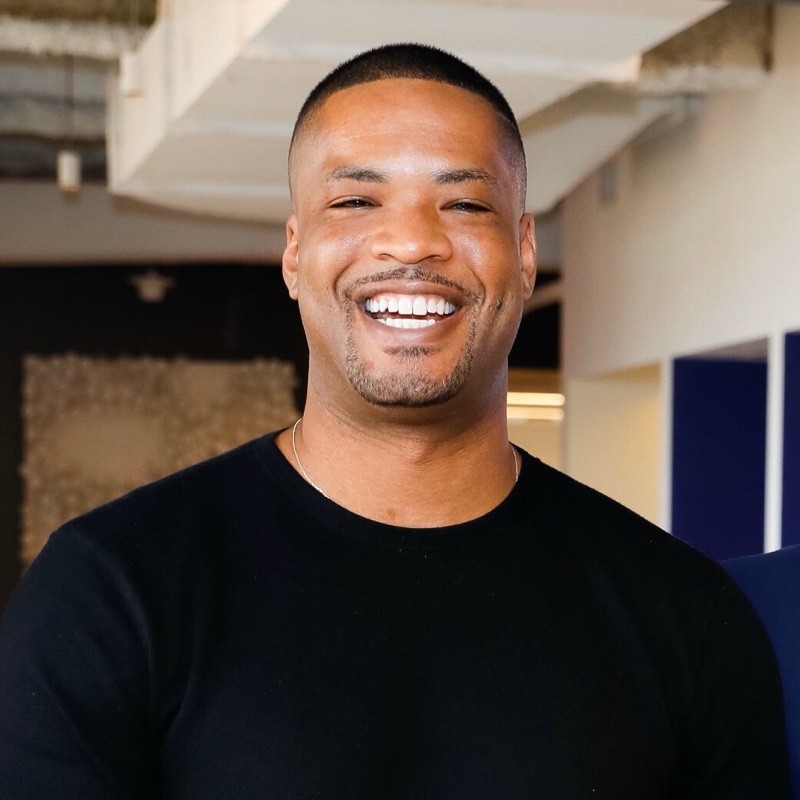How LGBTQ+ Gen Z graduates can find an inclusive employer: ‘Use all the tools you have’

Over 20 per cent of Gen Z people in the USA identify as LGBTQ+ (Getty Images/PinkNews)
As the month of May welcomes new graduates from universities and colleges in the US, Andrew McCaskill, a career expert at LinkedIn, has advice on how LGBTQ+ Gen Z people beginning their careers can find an inclusive employer.
A 2021 poll from Gallup shows that seven per cent of adults in the US identify as LGBTQ+, which is double the percentage from when the polling company first measured it in 2012.
Within the Gen Z demographic, 20 per cent identify as LGBTQ+. But despite this, 2023 will be a record-breaking year for anti-LGBTQ+ legislation at state level, with new laws rolling back anti-discrimination protections for queer employees.
For the LGBTQ+ community in the US, the workplace is becoming more of a safe space than wider society. A report from LinkedIn found that 75 per cent of LGBTQ+ professionals said that it is important for them to work at a company where they could feel comfortable bringing their full self to the workplace.
Fifty-four per cent said that their professional networks were supportive when they came out at work, while almost a quarter are still in the closet because they don’t want their gender identity or sexuality to affect potential career-growth opportunities.
So, it’s probably never been more important to find an inclusive employer. These new professionals are more driven by purpose than older generations, with 90 per cent of young workers saying that finding values is an important factor in a job. On average, three out of four proactively seek out a job that aligns with their personal values.
Now, LinkedIn has released a career resource guide for 2023, highlighting emerging trends in industries and locations for Gen Z professionals entering the US job market.
‘My advice to younger folks is use all the tools you have‘
Andrew McCaskill, career expert at LinkedIn
So how can young LGBTQ+ professionals find a workplace that will truly value them?
McCaskill, believes it involves a combination of research and asking questions during the interview process.
“An interview is a two-way process,” he tells PinkNews. “It’s an opportunity for you to understand if the role is right for you.”
“My advice to younger folks is to use all the tools you have to find a welcoming culture before you accept the offer. Research [the company’s] community engagement history and see if they’ve made and honoured public commitments to LGBTQ+ inclusion.”

McCaskill suggests asking questions around bias training for managers, LGBTQ+ networks and the company culture.
“We have to be just as intentional about finding the right fit as the companies interviewing us are,” he says.
Prior to the interview phase, there are a few ways to find out how queer-friendly a potential employer is. “See if the company you’re applying at takes part in the Human Right Campaign’s annual Corporate Equality Index,” McCaskill suggests.
The index rates the LGBTQ+ inclusivity of a company’s policies and practices.
McCaskill says to be on the lookout for inclusive language within any benefits offered, such as health or insurance cover for a partner, trans-inclusive healthcare and family formation.
He also advises tapping into personal networks to “reach out and ask questions about the workplace culture directly”.
‘We often didn’t know what a culture was like until we got in it‘
Andrew McCaskill, career expert at LinkedIn
McCaskill admits that some LGTBQ+ professionals still hesitate being out at work – LinkedIn’s data suggests that more than 53 per cent of LGBTQ+ workers hide their identity in the workplace. Many say that fear of discrimination, and frequently feeling unwanted, keep them from living their authentic lives.
However, he believes younger LGBTQ+ professionals kicking off their careers have better access to finding out how welcoming a business culture is to queer employees than when he was starting out.
“For most of my generation, it was a wait and hope-for-the-best situation. We often didn’t know what a culture was like until we got in it.”
‘Queer people are queer all year long, not just 30 days in June‘
Andrew McCaskill, career expert at Linkedin
Employers need to provide for and support their LGBTQ+ Gen Z employees, he says, and this includes understanding the toll of anti-LGBTQ+ headlines and laws being written. If not, those employees will simply quit.
LinkedIn data shows that 36 per cent of LGBTQ+ professionals would consider leaving their current company if they don’t take a firm stance against discrimination and news stories that have a negative impact on the queer community.
“There’s a greater expectation for organisations to speak out about ongoing anti-LGBTQ+ violence and legislation. We live in an era where employees, especially Gen Z, are looking to companies to stand up for causes that align with their values.”
“Queer people are queer all year long, not just 30 days in June [Pride month]. Employees want to feel safe and included the other 11 months of the year, too,” McCaskill points out.
How did this story make you feel?

